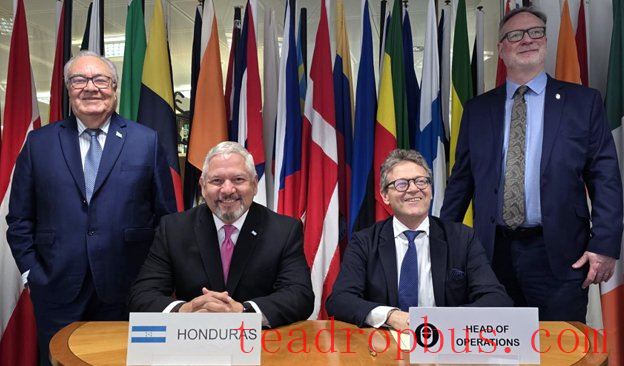2 of 2

With both Honduras and Vietnam officially on board, implementation of the 2022 International Coffee Agreement enters a new phase of increased global representation and enhanced effectiveness.
Prev
 Next
NextIn a significant development for the global coffee sector, the Republic of Honduras and the Socialist Republic of Vietnam have officially become signatories to the International Coffee Agreement, 2022, marking a crucial step in international coffee diplomacy and cooperation. The announcement comes as both nations seek to strengthen their positions in the global coffee market while committing to the sustainable principles outlined in the agreement.
The International Coffee Agreement, 2022
The International Coffee Organization was established in 1963, when the first International Coffee Agreement came into effect for a five-year period. It has continued to operate under successive Agreements since then. The International Coffee Agreement of 2022 is the eighth approved agreement since the establishment of the ICO. This latest version places unprecedented emphasis on sustainability, market transparency, and inclusive value chain development while furthering ICO’s mission of fostering cooperation among coffee-producing and consuming nations.
The ICA 2022 introduces several innovations compared to its previous iterations. The agreement expands the definition of the coffee sector to include the entire value chain, from production to consumption. It establishes stronger frameworks for addressing price volatility, promoting sustainable practices, and enhancing market transparency through improved data collection and sharing. The agreement also establishes mechanisms for public-private dialogue and cooperation, reflecting the changing dynamics of a coffee industry that is increasingly shaped by private sustainability initiatives and corporate procurement policies.
Honduras and Vietnam Sign the ICA
By signing the agreement, both Honduras, the largest coffee producer in Central America, and Vietnam, the largest coffee producer in Asia and the second largest coffee producer in the world, join the other member nations in furthering the dialogue between the producing and consuming countries, as well as the private sector, with the shared objective of fostering a more prosperous and sustainable future for all the stakeholders across the global coffee value chain.
“This act reaffirms Honduras’ position within the global coffee community and our commitment to advancing coffee diplomacy,” said His Excellency, the Secretary of Foreign Affairs and International Cooperation of Honduras, Ambassador Eduardo Enrique Reina. “We view the ICO and this ground-breaking agreement as key elements in achieving our ambitions for the coffee industry, both locally and globally, and we look forward to working with our ICO colleagues to secure a bright and prosperous future for coffee in the years and decades to come.”
The country’s signature comes at a pivotal moment as Honduran coffee farmers continue to recover from devastating weather conditions and persistent challenges from coffee leaf rust. It also formalizes their intention to host the 140th session of the International Coffee Council.
Vietnam is also striving to reinforce its position as a key player in global coffee dialogues, from sustainable farming practices and circular economy to value addition in producing countries. The country plays a significant role in the global coffee value chain, as the second-largest coffee producer in the world. Even slight variations in production have a significant impact on the global market. Vietnam has transformed its coffee sector drastically over the past three decades, moving from minimal production to becoming a global coffee powerhouse, with a primary focus on volume-driven exports. Signing the ICA is a step further in Vietnam’s efforts to diversify beyond commodity-grade canephora into specialty segments and sustainable certification programs.
“Vietnam recognizes the vital economic and social role that coffee plays in our national development. By signing the International Coffee Agreement, 2022, we affirm our willingness to work closely with all ICO members to promote sustainability, equity, and resilience across the global coffee value chain,” said His Excellency, Do Minh Hung, Ambassador of Vietnam to the United Kingdom who signed the ICA on behalf of the Vietnamese government.
Relevance and Impact for the Global Coffee Industry
For the broader coffee community, the participation of both Honduras and Vietnam, representing distinct producing regions and different market segments, demonstrates the International Coffee Agreement’s relevance across diverse coffee economies.
As coffee faces mounting challenges from climate change, market concentration, and persistent poverty among producers, the ICA stands as the primary intergovernmental framework for coordinated action. With Honduras and Vietnam now officially on board, the agreement’s implementation enters a new phase of increased global representation and potentially enhanced effectiveness in addressing the coffee sector’s most pressing challenges.